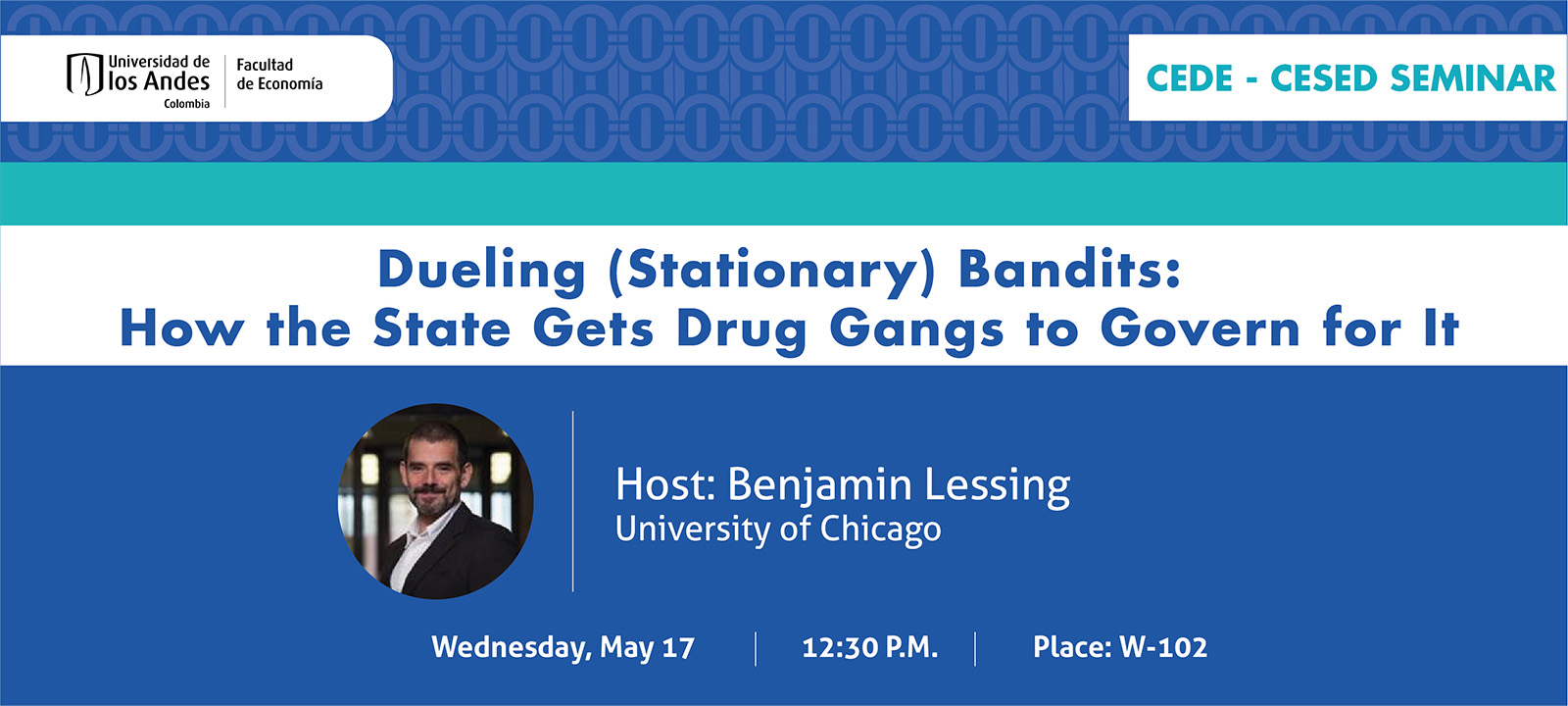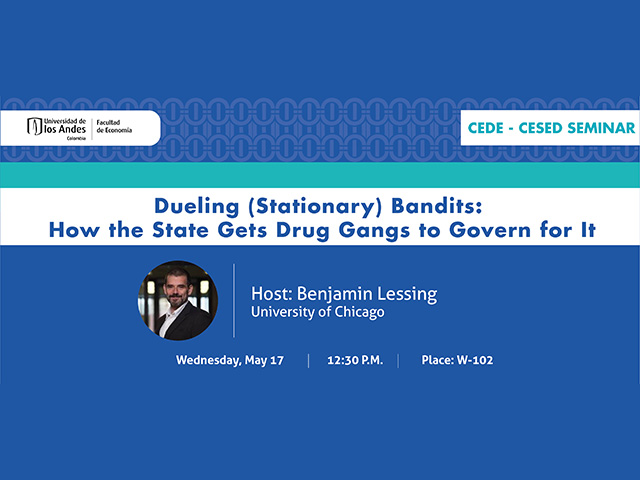CEDE - CESED Seminar | Benjamin Lessing

If states strive to establish monopolies on the legitimate use of force, why is criminal governance---gang rule---over civilians so common and persistent, especially in urban zones within easy reach of state forces? How have the resulting “duopolies of violence” survived decades of aggressive policing? Why do drug-retailing gangs often govern without taxing their subjects at all? ``Market-for-Protection'' models of state formation and that assume competition among symmetric, would-be monopolists provide limited traction on these questions. Instead, I develop a public-goods model where state and criminal governance overlap, and in which each stands to benefit the other actor. I adapt Mcguire and Olson’s (1996) model of stationary banditry by including a second bandit---the gang---and, in an extension, a drug market in which gang governance (and taxation) affect drug profits by winning (losing) residents' loyalty. Under some conditions, the state prefers criminal duopoly to Weberian monopoly: if gangs' relative costs of governance are sufficiently low, or if they can draw on illicit drug profits to finance governance. I analyze equilibria in which state repression of trafficking incentivizes gangs to channel drug profits into governance and reduce taxes on residents, indirectly benefiting the state enough that it prefers duopoly. Even if partially offset by the political costs to elected officials of criminal governance, these underlying fiscal benefits help explain the persistence of duopolies of violence over generations.

